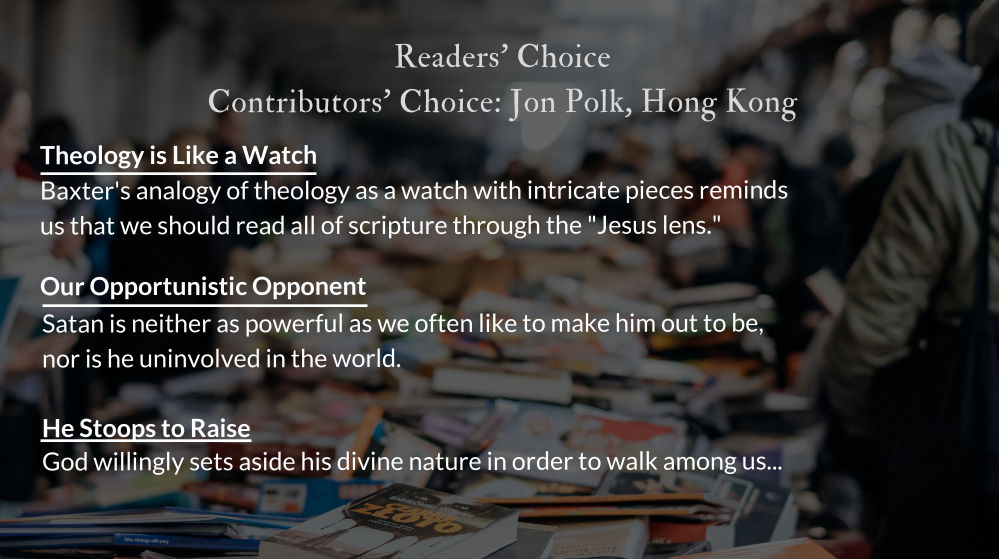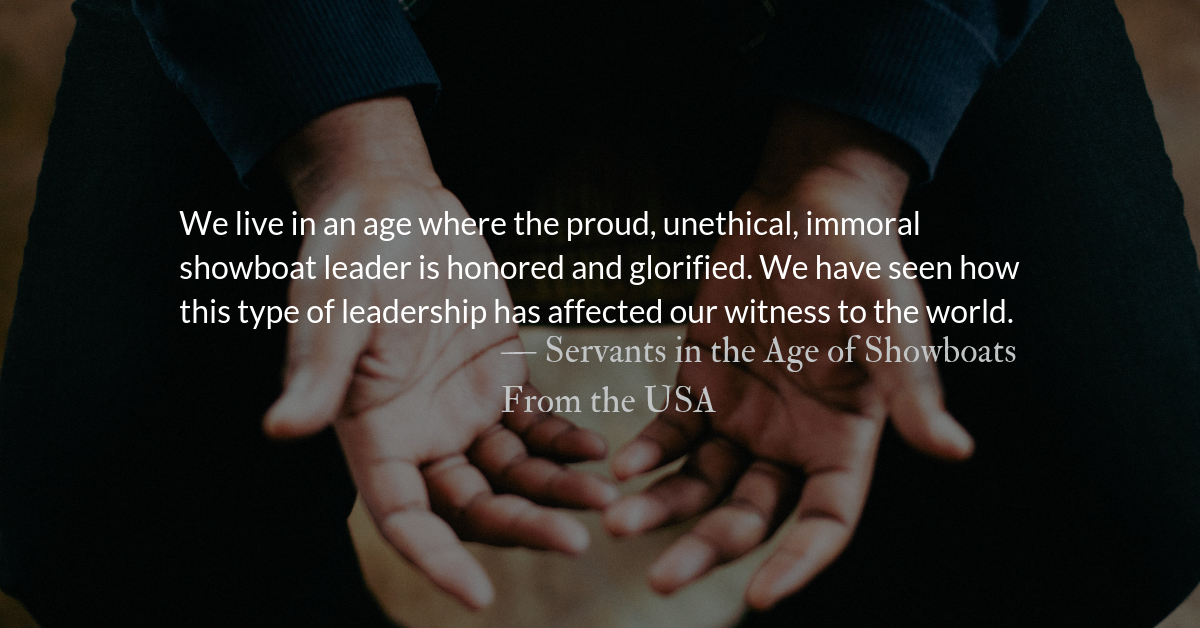Scripture Focus: 1 Corinthians 9.1
Am I not free? Am I not an apostle? Have I not seen Jesus our Lord? Are you not the result of my work in the Lord?
Reflection: Complaint to Commission
By John Tillman
In his book, Onward: Engaging the Culture without Losing the Gospel, Russell Moore relates a rebuke he received and took to heart. Moore and several others were discussing a topic that often arises among pastors and even among laypersons—the pitiful state of the church. Moore asked rhetorically if there was any hope for the future of Christian witness.
Many believers may have despondent questions regarding this topic that bring our spirits low.
Isn’t it terrible how leaders with no scruples are staining the church’s reputation?
Isn’t it terrible how church attendance is such a low priority for so-called “believers?”
Isn’t it terrible how many young leaders are apostatizing and publically leaving the faith?
Complaining can turn into unspiritual grumbling but it can also initiate lament in our lives and communities. To spur our thinking in the right direction, we sometimes need a wise answer to our complaining questions.
Theologian, Carl F. Henry was listening to Dr. Moore’s conversation and responded to Moore’s question:
“Why, you speak as though Christianity were genetic. Of course, there is hope for the next generation of the church. But the leaders of the next generation might not be coming from the current Christian subculture. They’re probably still pagans. Who knew that Saul of Tarsus was to be the great apostle to the Gentiles? Who knew that God would raise up a C.S. Lewis, once an agnostic professor, or a Charles Colson, once Richard Nixon’s hatchet man, to lead the twentieth-century church? They were unbelievers who, once saved by the grace of God, were mighty warriors of the faith.”
It would be difficult to find a New Testament city more akin to our culture than Corinth. Our culture is equally pagan, sinful, and damaging. Paul’s long and passionate letters to the Corinthians show his own struggles, complaints, and problems with the church and its witness there. Paul also shows us how to go beyond complaint to the cure our culture needs—the gospel.
These believers, who were formerly sinners of every kind, were dear to Paul’s heart. As we work to transform our culture with the gospel, the sinners around us must be dear to our hearts as well.
We must be their apostle. The work of making disciples is not given only to the clergy. It is the calling and command to every believer. The disciples to lead the next generation of the church may be those we have yet to reach.
Divine Hours Prayer: A Reading
Jesus taught us, saying: “Is a lamp brought in to be put under a tub or under the bed? Surely to be put on the lampstand? For there is nothing hidden, but it must be disclosed, nothing kept secret except to be brought to light. Anyone has ears for listening should listen.” — Mark 4.21-23
– From The Divine Hours: Prayers for Summertime by Phyllis Tickle.
Today’s Readings
1 Samuel 28 (Listen – 4:04)
1 Corinthians 9 (Listen – 4:04)
Thank You!
Thank you to our donors who support our readers by making it possible to continue The Park Forum devotionals. This year, The Park Forum audiences opened 200,000 free, and ad-free, devotional content. Follow this link to join our donors with a one-time or a monthly gift.
Read more from Blessed is the One :: A Guided Prayer
We are not blameless. We are not righteous.
When we honestly and humbly look in our hearts we find wickedness there.
Read more about We Need Renewal :: Worldwide Prayer
Sometimes when we read in the scriptures that there is no one who does good, we fool ourselves by thinking we are the exception.










